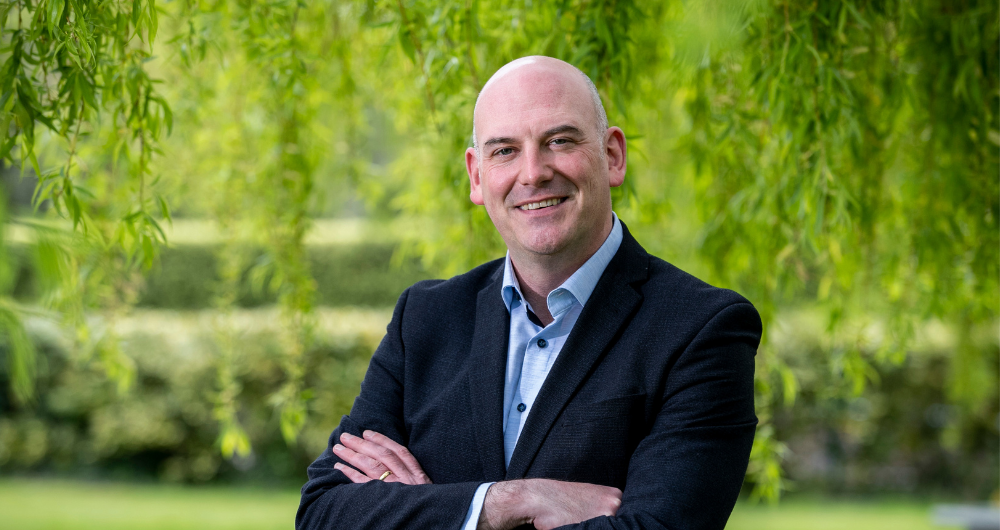
Individual health improvement comes with a range of challenges that can scupper the effort early on, sometimes before you even get going. Knowing what changes to make – the changes that will work for you – is a tough call. It’s easy to feel intimidated by all the steps you need to take. If you’re already feeling overwhelmed, the effort to improve your health can seem like just another stressful job.
Students face particular challenges in this regard. Heavy academic workloads combined with part-time jobs, suboptimal accommodation and extremely limited finances for food and leisure spending can make the task seem impossible. Many people feel like they are coping rather than thriving. It is critical for anyone who feels like this that any changes they make are both manageable and impactful.
Data science offers us the opportunity to measure – immediately and accurately – our body’s habits and responses. Step counters, sleep monitors, food diary apps, mood measurements apps, all cheaply or freely available on our phones, give us the opportunity to better understand our own physical patterns. However, there is a growing public sense, often justified, that all this measurement serves only to make us more visible to commercial interests, rather than to ourselves.
The FLOURISH Programme, available to students in DCU and UCD, combines the power of data science with a commitment to empower students to take control of their own wellbeing. FLOURISH is similar to other programs on wellness and the ‘science of happiness’ at Yale and Berkeley in the US, but in addition to being about wellbeing, it is also about data, and putting that data in the hands of students and teaching them how it can be mined for personal benefit.
Led by Prof Alan Smeaton from the Insight SFI Research Centre for Data Analytics, FLOURISH delivers practical tips to students for everyday wellness and also aids in improving students’ digital literacy, specifically the awareness of personal health and fitness data and its potential for developing healthier habits.
One hundred and sixty nine students were given a Fitbit Versa 3 to support them throughout this health and wellness project, providing the guidance and insights to reach their goals. Students used their Fitbits to see how changes they made to their own lifestyles, e.g. exercise, sleep, diet, were reflected in their own personal data and how even small changes impacted their overall wellness.
The results were significant. Almost nine out of 10 students said taking the module reported improvements in their overall wellness. Over 70 per cent said it improved aspects of their sleep and nutrition. More than nine out of 10 said the programme changed their understanding of their personal data so that they can now make informed decisions about their overall wellbeing.
Sleep, behavioural changes and use of personal health and fitness data were the most accessed topics. We know that good sleep habits are essential for mental health, energy and focus, but having the power to measure our sleep quality against subsequent wellbeing and performance over a defined period really brings home that value on a personal level. Equally, if your sensor is telling you that you are reaching your daily exercise gaols and you are measuring better sleep as a result, that’s a satisfying improvement that you will feel motivated to make permanent.
Some of the strudents’ testimonies in a formal report describing the programme and its impact are very enlightening;
‘I noticed that the increased physical activity (from FLOURISH assignment) made me feel more awake throughout the day and made me fall asleep earlier. I also felt better about myself when I took the time out of my day to exercise.’
‘I’m curious to see how the usage of data will evolve over the course of my lifetime but I will be sure to reduce how much I give to strangers now that I know how much power it gives to them.’
‘It was interesting to see what I am actually putting into my body, do I fuel it with enough good nutrients and what things I need to cut back on. This will help me in the future and allow (me) to improve my diet.’
Tellingly, launched on a limited pilot basis as an elective (voluntary) module, such was the demand that FLOURISH is now available on a university-wide basis and we are discussing rolling it out in other universities around the country.
Data and wellbeing are linked, whether we like it or not. Our ‘always on’ culture has dissolved the boundaries between day and night, weekends and weekdays, mealtimes and worktimes. Understanding and harnessing our own data for ourselves is a practical way of taking some control and reasserting some of these critical boundaries.
At the Insight SFI Research Centre for Data Analytics we are committed to empowering citizens to make use of their own data pool for their own needs. Whilst we work closely in partnership with industry, we are also Ireland’s national data research centre, one of the biggest in Europe, funded in large part by the Irish public. One of our core objectives is to direct as much national data science research as possible in the direction of citizen empowerment.
Everyone with a phone, smart watch, Fitbit or smart device is creating a huge amount of data every day. This is now a fundamental part of our daily existence and it’s not changing anytime soon. FLOURISH is a great example of how some of the power generated by the data we produce can be handed back to us.